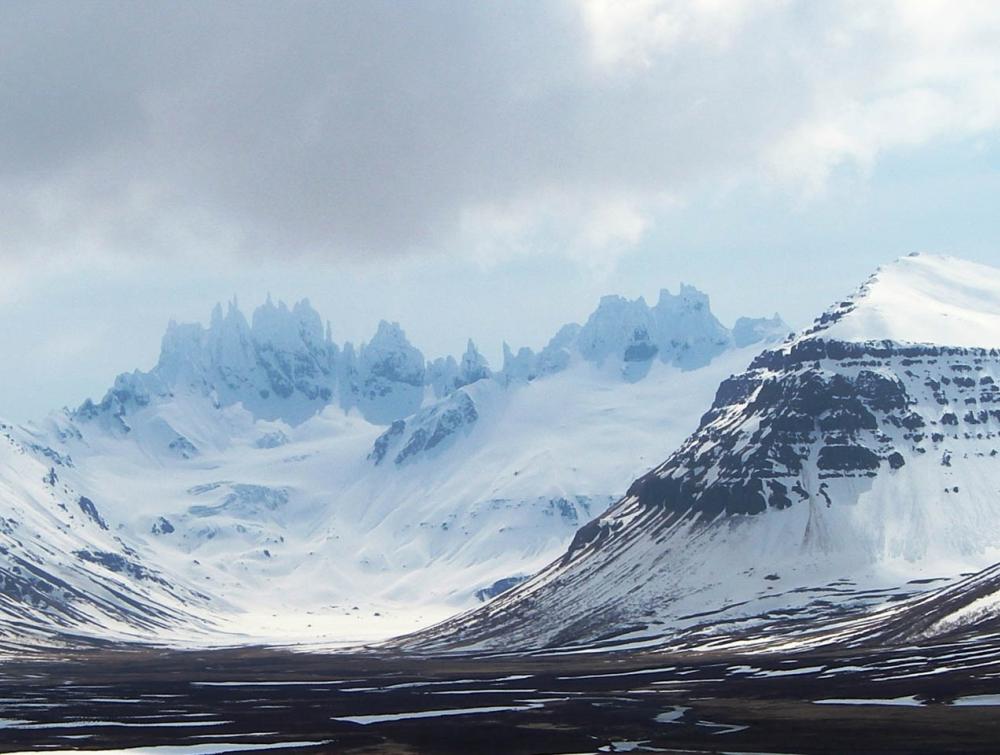Obscure Alaska road project sets destructive precedent for wilderness

Izembek National Wildlife Refuge.
Kristine Sowl, USFWS.
"Land swap" involving Izembek National Wildlife Refuge could also endanger migratory birds.
The Department of the Interior is giving away public land so that a road can be built through an Alaska wildlife refuge, setting a disastrous precedent for wilderness.
On Jan. 22, the Department of the Interior agreed to a "land swap" that would give a portion of Izembek National Wildlife Refuge to the King Cove Corporation. The swap is the first step to building a road that could endanger numerous migratory birds, brown bears and caribou while threatening to close off access to sportsmen.
Perhaps even more significant than these immediate risks, the move will surely serve as a model for future challenges to federal wilderness protection, America's highest standard of public land conservation. The vast majority of Izembek has been designated as a wilderness area for decades.
“This appalling move by the Trump administration is the result of a backroom deal that deprives the public of an opportunity to comment and defend the Interior Department’s science-based decisions against the road,” said Nicole Whittington-Evans, Alaska regional director at The Wilderness Society, in a statement.
Izembek a vital, embattled refuge for migratory birds
A thin chain of land on the Bering Sea coast, Izembek National Wildlife Refuge hugs two lagoons that sustain ecosystems considered to be vital habitat for millions of birds during their annual migrations, including Steller’s eiders and 98 percent of the world’s Pacific brant. Additionally, the refuge sustains the highest concentration of brown bears in the region, and a strip of land between the Izembek and Kinzarof lagoons serves as corridor for caribou traveling to and from calving grounds.
For years, The Wilderness Society has worked to defend the refuge from a proposal to build an unnecessary road through it. In 1998, Congress passed a law specifically prohibiting a road through Izembek's wilderness. The U.S. Department of the Interior has twice studied and rejected such a project, concluding it would damage the heart of the refuge. In 2015, U.S. District Court upheld U.S. Secretary of the Interior Sally Jewell’s decision to protect Izembek.
Nevertheless, Alaska Sens. Lisa Murkowski and Dan Sullivan, Rep. Don Young and others have spent years pushing for the road. Buoyed by special interests, this zombie legislation keeps rising from the dead, no matter how many times we knock it down. When the Trump administration swept into Washington DC, it re-energized this effort, moving the project forward by executive fiat.
Land swap violates decades-old wilderness protection standard
In 1980, Congress passed legislation designating the Izembek Wilderness to encompass most of its namesake refuge. This ensured Izembek's enshrinement in the National Wilderness Preservation System, a network of lands where no logging, mining, roads, vehicles or permanent structures are allowed.
Federal wilderness areas are the crème de la crème of American public lands, places that are open for activities like hiking, fishing and camping but shielded from the depredations of industry. Making up just 2.7 percent of the contiguous U.S., these are the last untouched pieces of an increasingly developed nation.
In the more than 50 years since the National Wilderness Preservation System was created through the signing of the Wilderness Act in 1964, a number of politicians have tried to carve out exceptions to its mandate or weaken the protections it offers. Some of the most prominent attempts have involved introducing mechanized and motorized transportation to wilderness areas.
The Izembek land swap is perhaps the most egregious attempt to statutorily break down the law. It sets a disastrous precedent by stripping federal wilderness protection in order to build a road for which there are several viable alternatives. If this road is built, it will make future destructive incursions into wilderness areas that much easier.
Izembek swap raises further doubts on Zinke's public lands promises
The announcement comes months after a range of companies and organizations including The Wilderness Society submitted a legal petition that would direct Interior Secretary Ryan Zinke to develop rules prohibiting the sale or transfer of public lands. Zinke has previously said he opposes the land takeover movement, but his Interior department has taken a range of actions that severely undermine that claim, even tacitly supporting land sell-offs by offering positive testimony for a bill that would push the Bureau of Land Management to sell off 6,000 acres of public land in northwestern Arizona.
This is by far the most overt support Zinke's agency has lent the public land takeover movement, and serves notice that the secretary's old pro-public lands principles are dead and buried.
“We respect the transportation needs of King Cove, but the U.S. Army Corps of Engineers has determined that viable non-road alternatives exist to meet the community’s needs while protecting the Izembek refuge’s globally important ecosystem,” The Wilderness Society's Whittington-Evans added. “The administration does not have the legal authority to take this action, and we will challenge them in court to ensure this wilderness area remains intact.
